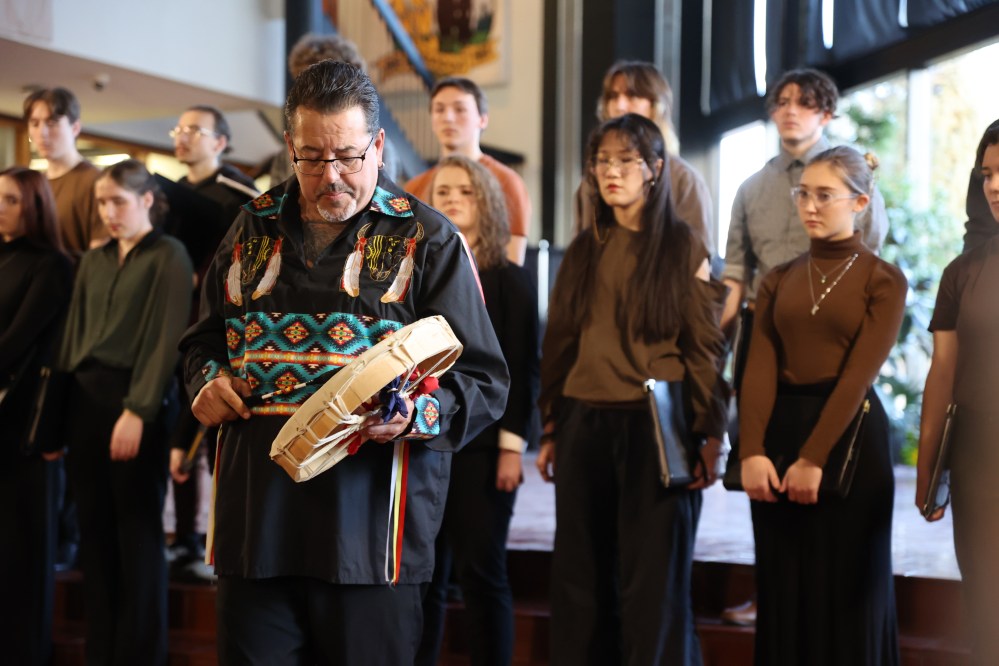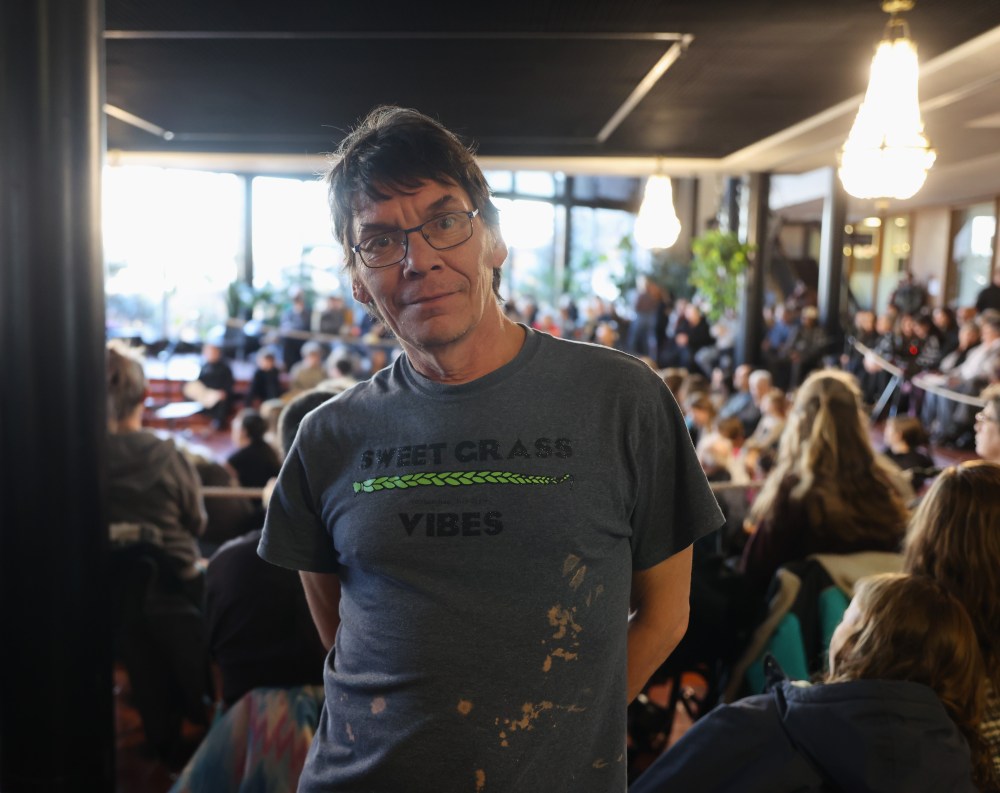Cree composer’s work honours Indigenous soldiers
Advertisement
Read this article for free:
or
Already have an account? Log in here »
We need your support!
Local journalism needs your support!
As we navigate through unprecedented times, our journalists are working harder than ever to bring you the latest local updates to keep you safe and informed.
Now, more than ever, we need your support.
Starting at $15.99 plus taxes every four weeks you can access your Brandon Sun online and full access to all content as it appears on our website.
Subscribe Nowor call circulation directly at (204) 727-0527.
Your pledge helps to ensure we provide the news that matters most to your community!
To continue reading, please subscribe:
Add Brandon Sun access to your Winnipeg Free Press subscription for only
$1 for the first 4 weeks*
*$1 will be added to your next bill. After your 4 weeks access is complete your rate will increase by $4.99 a X percent off the regular rate.
Read unlimited articles for free today:
or
Already have an account? Log in here »
Hey there, time traveller!
This article was published 27/11/2023 (677 days ago), so information in it may no longer be current.
It was standing room only in the atrium at Brandon City Hall on Sunday for an award-winning Cree composer’s concert featuring the university’s chorale group, an Indigenous Songkeeper, a tenor soloist, and a lone cello.
Manitoba’s Andrew Balfour is a Juno-nominated Indigenous composer who was Brandon University’s artist-in-residence last week. His piece, War Oratorio Nôtinikêw, (Going to War), tells the stories of forgotten Indigenous soldiers through music.
“This is an anti-war oratorial. I’m not a war veteran, but I’ve listened to a lot of stories, and I want to try to tell them the best way I can. I can’t even imagine what it would have been like to be in a foxhole with artillery coming from a mile away.

“The idea that youth was cannon fodder is the worst crime, it’s the worst crime,” Balfour said.
Balfour was curator and composer-in-residence of the Winnipeg Symphony’s inaugural Indigenous Festival in 2017 and was awarded a gold medal by the Senate of Canada for his contribution to Canada’s Indigenous and music communities.
A lot of his compositions involve themes related to Truth and Reconciliation, including this most recent concert in Brandon, said Leanne Zacharias, an associate professor of music and the solo celloist during Sunday’s concert.
Bringing Balfour to Brandon was a team effort including Zacharias, the Dean of the School of Music Greg Gatien, the conductor of BU’s Chorale Andrée Dagenais, and the university’s Indigenous Peoples’ Centre.
“It’s a relatively new piece, he wrote it in 2018 and has only been performed in Montreal, Edmonton and Winnipeg,” said Zacharias.
“The piece is based on stories of indigenous soldiers from World War I and the challenges that many of them faced not only going into battle, but also the complexity of being indigenous and fighting for the Canadian military, but in most cases, not receiving a hero’s welcome when they returned,” Zacharias said.
The composition started with the BU Chorale, and in between the tenor soloist and Zacharias and her cello, was Cory Campbell, an Ojibway Songkeeper who found his own voice at powwow ceremonies, and now brings his drum and song to Balfour’s composition.
“The very first song in the piece is calling all warriors,” said Campbell. “And in another song, I call out to a grandmother. I sing in between the other artists, which is all complimented by the narration – and that’s Balfour.”
The soldiers who told their stories to Balfour who are the basis of his piece, were from northern Manitoba communities like Norway House and Cross Lake.
“The allies reached out to all our northern communities and said, ‘We need you; we need you to come and fight for the Crown.’” And many thousands signed up for the First World War and the Second World War.
“But when they came back if they survived – they didn’t have voting rights. Indigenous people couldn’t vote until 1967. It’s horrific that this country has let us down in such a way and we still fought for you.

“And we still sing songs and we’re still here,” Balfour said.
As he spoke to the shoulder-to-shoulder crowd on Sunday, Bafour said the was going to teach that going to war is “pretty heavy,” and his intention was not to offend anybody, but to break down pre-conceived notions people have of race, creed and colour.
“We’re all Anishinaabe. It’s not about Cree, or Ojibwe, or Asian or Ukrainian. That’s the most important lesson that elders have taught me, we’re all Anishinaabe two-legged creatures.
“We only have a small space on Mother Earth, and when we can deconstruct the idea of like colours, and races and nations, then we can live in peace.”
For a listing of BU concerts coming up in December, visit https://bitly.ws/33r3s
» mmcdougall@brandonsun.com
» X: @enviromichele
